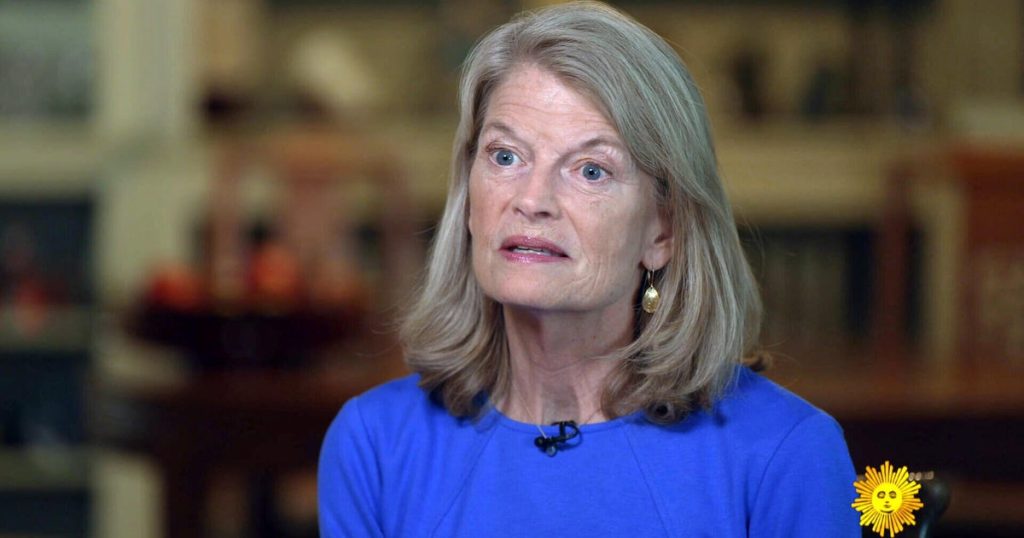Republican Senator Lisa Murkowski has articulated her apprehensions regarding the proposed cuts to Medicaid and food assistance benefits included in President Trump’s reconciliation bill, often referred to as the “big, beautiful bill.” In a recent interview, she emphasized the potential negative impact of these cuts on her constituents in Alaska. While she has not laid out definitive deal-breakers, her concerns focus on protecting vulnerable populations who rely on these essential programs.
| Article Subheadings |
|---|
| 1) Murkowski’s Concerns About Medicaid Cuts |
| 2) The Impact of Changes on Alaskan Beneficiaries |
| 3) Legislative Process and Deadlines |
| 4) Broader Implications for SNAP and Medicaid |
| 5) The Role of Public Opinion in Policy Decisions |
Murkowski’s Concerns About Medicaid Cuts
Senator Lisa Murkowski has publicly stated her concerns regarding potential cuts to Medicaid as part of the proposed reconciliation bill. In a detailed interview, Murkowski noted that the proposed changes could significantly impact low-income families and individuals with disabilities in Alaska. “I have been pretty clear that when it comes to Medicaid, those cuts that would harm Alaskan beneficiaries are not something that I can take home,” she remarked. Her position reflects a broader unease among some Republicans who worry that drastic cuts could alienate voters at home, particularly in a state with unique healthcare challenges.
The Impact of Changes on Alaskan Beneficiaries
The proposed changes to Medicaid are particularly worrisome for Alaska, where approximately 40% of children are enrolled in the program. Senator Murkowski emphasized the importance of maintaining access to necessary healthcare services. It is crucial for Alaskan families and children at risk to ensure they receive adequate support. “We have some of the highest healthcare costs in the country,” she explained, underscoring the challenges faced by her constituents. The proposed modification which includes new work requirements has raised alarms regarding accessibility for low-income families who rely heavily on these programs for their basic healthcare needs.
Legislative Process and Deadlines
As the reconciliation bill progresses, the Senate has accelerated discussions surrounding its provisions. John Thune, the Senate Majority Leader, has called for the bill to be finalized by the July 4 holiday. However, with time running out, Murkowski’s voice in this legislative process is crucial. Discussions surrounding deeper cuts to Medicaid than those proposed by the House have emerged, illustrating a contentious debate among lawmakers about the direction of healthcare funding and priorities. Murkowski’s reluctance to endorse deeper cuts reflects her commitment to her constituents and the vulnerable populations who depend on these services.
Broader Implications for SNAP and Medicaid
The reconciliation bill does not only seek to modify Medicaid but also aims to impose additional requirements on the Supplemental Nutrition Assistance Program (SNAP). Proposed changes may implement stricter work requirements, raising concerns among advocates for low-income families regarding access to food benefits. Critics argue that imposing these requirements could limit essential services for the most vulnerable. As Murkowski points out, “doing it with the most vulnerable bearing the brunt of that is not the answer.” Maintaining a safety net for the impoverished remains a significant contention point in this ongoing debate.
The Role of Public Opinion in Policy Decisions
The voices of constituents are pivotal in shaping policy decisions. Murkowski’s insistence on protecting Alaskan beneficiaries reflects a sensitivity to public opinion in her home state. As awareness grows regarding the implications of proposed cuts on Medicaid and SNAP, public pressure could impact how lawmakers approach these reforms. The sentiment among residents and advocacy groups will likely influence future negotiations, as officials strive to address the concerns raised by constituents, particularly in election years. Recognizing the unique geography and demographic challenges of Alaska, Murkowski aims to represent the needs of her constituents faithfully.
| No. | Key Points |
|---|---|
| 1 | Senator Lisa Murkowski is concerned about potential cuts to Medicaid in the reconciliation bill. |
| 2 | Approximately 40% of children in Alaska are enrolled in Medicaid, highlighting the program’s importance. |
| 3 | Senate Majority Leader John Thune aims for the reconciliation bill to pass by July 4. |
| 4 | SNAP benefit changes could implement stricter work requirements, bringing more challenges to low-income families. |
| 5 | Public opinion will play a critical role in shaping the final form of the proposed legislation. |
Summary
The ongoing debate surrounding President Trump’s reconciliation bill has sparked significant discussion among lawmakers, particularly regarding proposed cuts to Medicaid and SNAP benefits. Senator Lisa Murkowski‘s strong stance against deep Medicaid cuts reflects her commitment to protecting vulnerable populations in Alaska. As deadlines approach for the legislation, public opinion and constituent concerns may ultimately shape the final outcome of the bill.
Frequently Asked Questions
Question: What changes are proposed for Medicaid in the reconciliation bill?
The reconciliation bill proposes deeper cuts to Medicaid, including new work requirements that could significantly impact access to healthcare for low-income families.
Question: How does Alaska’s Medicaid enrollment compare to other states?
Alaska has one of the highest enrollment rates in Medicaid due to its unique healthcare challenges, with approximately 40% of children relying on the program for essential services.
Question: What are the potential implications of stricter SNAP requirements?
Stricter requirements for SNAP could limit accessibility to essential food benefits for low-income families, potentially increasing food insecurity among vulnerable populations.


